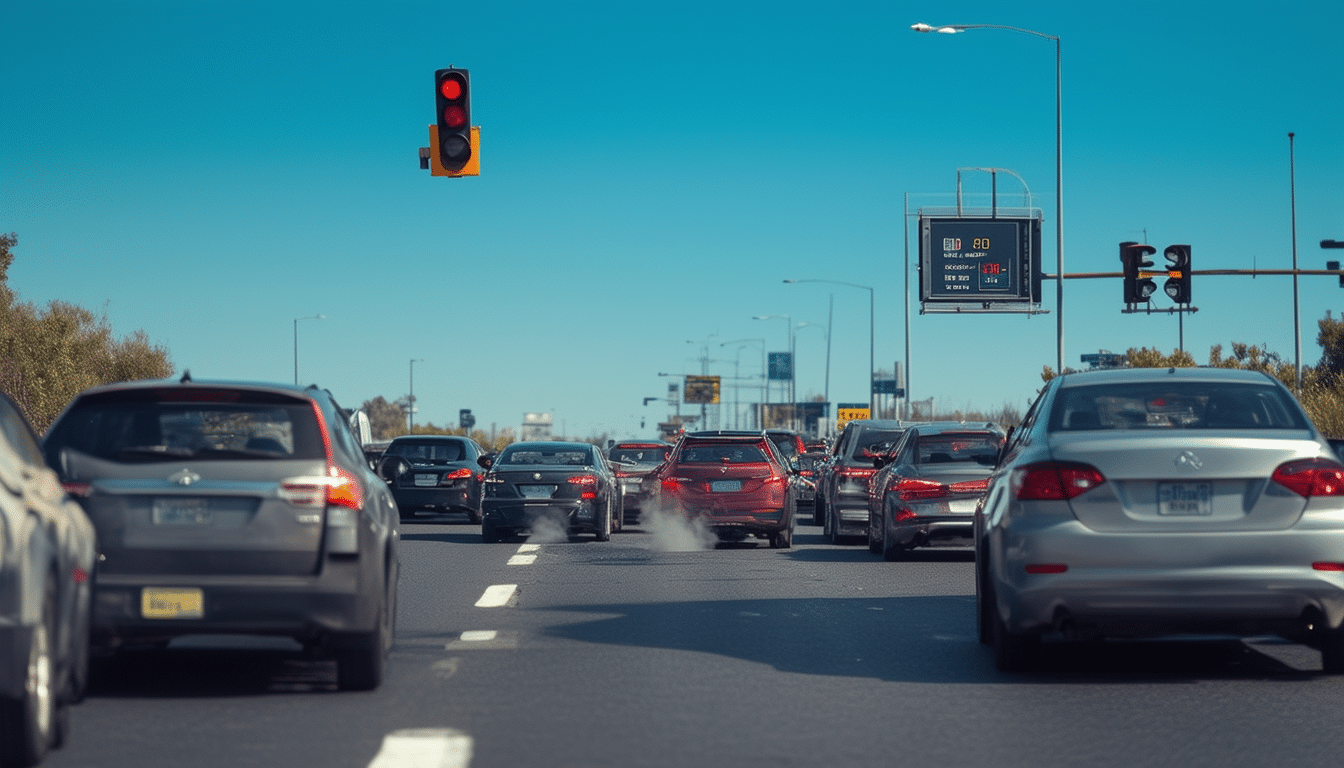Impact of traffic congestion on fuel expenditure

Traffic congestion has become a daily phenomenon in many cities, affecting not only the mobility of citizens but also their economy and the environment. The increase in wait times and the idling of vehicles leads to a superconsumption of fuel, resulting in higher economic costs and an increase in pollutant emissions. In this context, it is essential to analyze how these interrelated factors impact fuel expenditure and what actions can be taken to mitigate their negative effects.
Traffic congestion has become a growing problem in urban areas, causing not only delays in travel but also a notable increase in fuel expenditure. The relationship between congestion and fuel consumption is complex, as it involves various factors that affect both drivers and the environment. This article explores in detail how traffic congestion impacts fuel expenditure and the possible solutions to mitigate this issue.
Economic costs of traffic congestion
The economic impact of traffic congestion is reflected in the fuel costs that drivers face. According to recent studies, drivers who spend long periods idling due to traffic end up consuming significantly greater amounts of gasoline. This overconsumption not only affects the wallets of users but also impacts the economy as a whole, increasing fuel prices and operating costs for businesses.
The relationship between congestion and fuel consumption
Vehicle congestion increases transit time and causes inefficient use of vehicles, which in turn increases fuel expenditure. Factors such as increased stops and starts, the need for maneuvers to change lanes, and prolonged idling contribute to higher fuel utilization. Estimates indicate that, in congested areas, fuel consumption can increase by up to 25% compared to smooth traffic conditions.
Environmental impact of congestion
In addition to economic costs, traffic congestion has a significant environmental impact. The increase in fuel consumption leads to a rise in greenhouse gas emissions, contributing to climate change. Dense traffic not only results in the release of carbon dioxide but also other harmful pollutants for human health and the environment. The need to address this challenge is urgent, as air quality in cities continues to deteriorate.
Solutions to reduce the impact of traffic on fuel expenditure
There are various strategies to mitigate the impact of traffic congestion on fuel expenditure. Promoting the use of public transportation, encouraging carpooling, and facilitating the implementation of navigation systems that optimize routes are some of the viable solutions. For example, using applications that indicate real-time traffic can help drivers choose alternative paths that reduce both travel time and fuel consumption. Tips on how to choose the best gasoline to reduce expenditure can be found here.
Conclusions about congestion and its effect on fuel expenditure
Traffic congestion is a phenomenon with significant repercussions on fuel expenditure. The associated cost is not only measured in economic terms but also in environmental and health effects. Taking measures to alleviate this problem is crucial for both drivers and the overall well-being of society. The implementation of navigation technologies that help optimize consumption can be a significant step towards a more sustainable future. For more information on navigation systems that help save gasoline, check this link.
To learn effective strategies to reduce transportation costs in infrastructure projects, visit this article.
Traffic congestion remains a challenge in improving transportation efficiency. Adopting more sustainable practices can mean a significant reduction in fuel expenditure and environmental pollution. With collective awareness and responsibility, it is possible to change the narrative and tackle the challenges posed by urban traffic.
Traffic congestion has become one of the main urban concerns in the modern world. This situation not only causes an increase in travel times, but also has a significant effect on fuel expenditure. When vehicles remain in idling for long periods, gasoline consumption rises considerably, leading to greater costs for drivers and a negative impact on the environment.
Recent studies have shown that the extra cost of fuel caused by congestion can be alarming. In many cities, cars can end up consuming 20% more fuel due to traffic conditions. This not only affects users’ budgets but also increases pollutant gas emissions, contributing to the deterioration of air quality and the global climate crisis.
Furthermore, traffic congestion creates indirect costs. Companies may see their competitiveness diminished due to delays in production and delivery of products. This generates a cycle of economic inefficiency, where the cost of fuel, coupled with lost time, affects not only individuals but also the economy in general. Therefore, it is crucial to address the problem of congestion using effective strategies for sustainable mobility and education on the efficiency of fuel use.
In summary, the impact of traffic congestion on fuel expenditure is a multidimensional issue that requires immediate attention. A combination of transportation policies, responsible vehicle use, and promotion of public transportation could offer viable solutions to mitigate this problem and foster a healthier and more sustainable environment.






